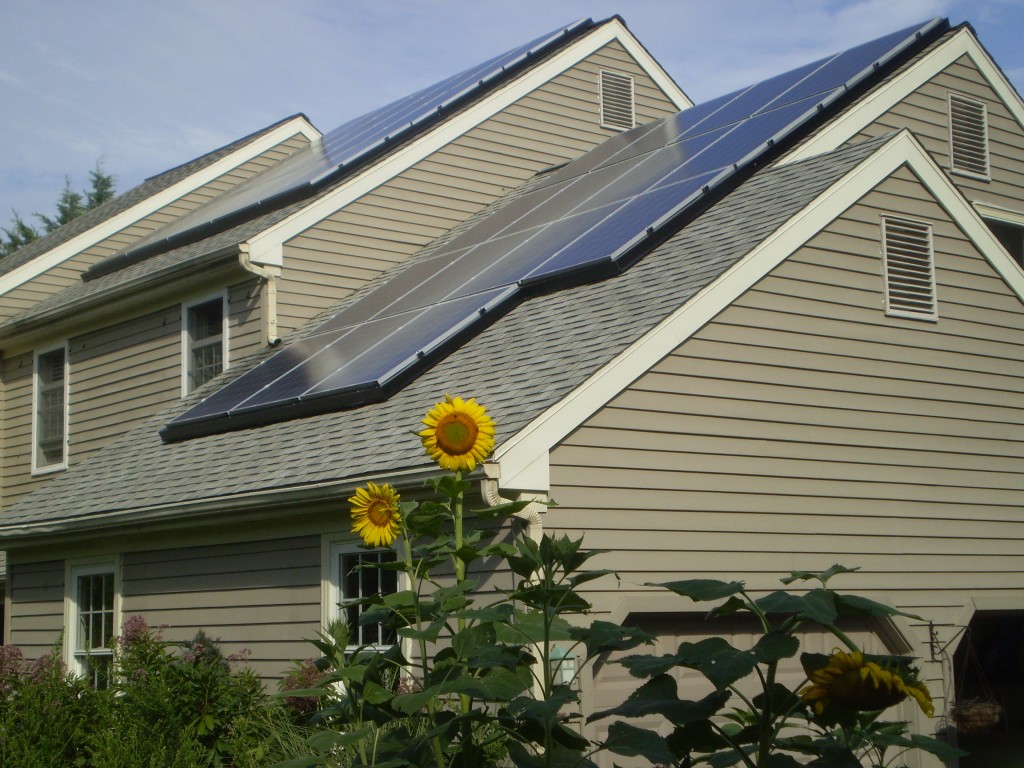I was out my garden the other day trying to find the daffodils under the leaves when I was stopped mid-rake by a neighbor asking how we liked our solar panels. “I have always wanted to get those for my house, how do you like them?” he asked.
“Love them.” I said “We haven’t had a charge for electricity beyond a monthly grid connection fee in three years. We estimate the payback at 3 and a half years. In fact we have sold excess power to PECO every month since the panels were installed”
“I want them,” said he, “how do I get started.”
I gave him the installers contact information and invited him in for a look see at the system (he declined) and then I said, “Of course, the more your conserve, the better your return will be; living with solar makes you more aware of your consumption patterns.” And then I added, “I write a blog about saving energy that might help.” (he wasn’t interested)
The idea of conservation threw him for a loop. In fact, he said that he doesn’t and couldn’t conserve. Going further, he said that he had never thought about the power he uses and didn’t plan on thinking about it in the future. I asked him why and he said it was too much bother.
With that he kept on walking and I stood, rake in hand, staring at the solar panels, thinking about this blog, how conscious my family is of our consumption, and then wondering if he represents the norm – boy I hope not – carbon emissions aside, think about how much money he is wasting by not being aware.
Conscious Consumption is a phrase that is slowly creeping into the vernacular. It means to think, really think about what you buy before you buy it. Not just about where something was made but how, by whom and from what. It is also about packaging and life cycle – what happens to the product after you have finished using it. One big part of Conscious Consumption is figuring out whether you even need the thing in the first place.
I think one of the biggest problems with recognizing that using electricity costs money is that the utility bill is like using a credit card without ever having to swipe the machine – it just automatically logs your use and sends the charge at the end of the month. How convenient!
The key to reducing your electricity consumption is understanding that you really are making a purchasing decision every single time you turn on a light, charge a cell phone, leave the computer on all night, or turn up the heat. Every single watt used to power a device costs you money. Every single watt saved, saves you money. A watt doesn’t cost that much but take a look at your electric bill – watts add up pretty fast and then they start to cost real money.
Conscious Electricity Consumption (try saying that three times fast) focuses on figuring out whether you need to buy the power in the first place: Do I need that light on? Can I use the door instead of raising the garage door? Should I power off the computer when not in use or leave it on all the time? How long does the phone need to charge and how do I stop charging when the battery is full? What wattage is the light bulb I am about to turn on?
At first, finding questions and answers is easy, then, when you see a difference in your bill, it becomes a game and then it becomes like investigative journalism as you try to ferret out the hidden electricity drains. My neighbor says that conserving energy is too much of a bother. I disagree and hope that you do to. Get started tonight with these simple ideas:
- Turn off the exterior lights on the house and in the garden.
- Connect the TV and its ancillary equipment to a power strip and shut it off when not in use – especially while you are sleeping.
- Power down and unplug your computer, printers and the modem(s).
- Turn off the lights when you go to bed. If you need relief from the dark, there are some nifty LED night lights available that use very little power.
- Unplug the cell phone/iPad chargers or use a power strip that automatically shuts off when the devices are fully charged.
- Turn down the heat a few degrees before you go to bed.
- Repeat these actions every night for at least a month and check out the difference in your electricity bill.
Be a Conscious Electricity Consumer and save for you and for the planet.
